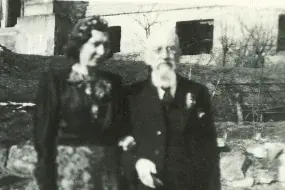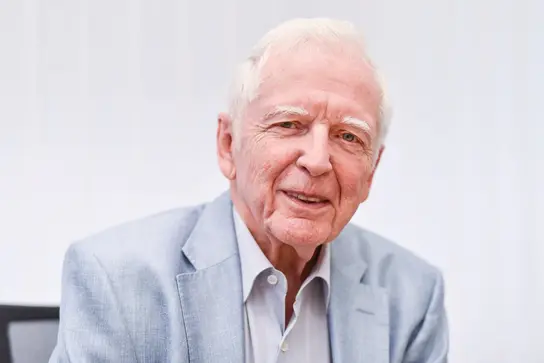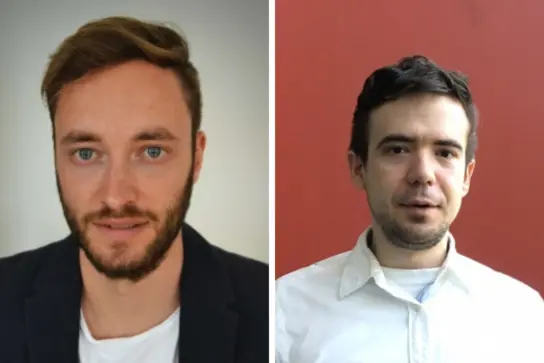Walther and Christine Richtzenhain Foundation
Recognizing successes in cancer research

The Richtzenhain Foundation promotes cancer research in accordance with the will of the founders by awarding two prizes alternately each year. In one year, scientific work from research institutions in the Federal Republic of Germany that focuses on the successful transfer of research results into possible clinical applications is considered. In the following year, outstanding dissertations in the field of cancer research that were completed at a research institution in Heidelberg or at Heidelberg University are honored.
The prize goes back to the Richtzenhain medical couple, who were based in Darmstadt. Dr. Walther Richtzenhain died in 1950, his widow Dr. Christine Richtzenhain in 1975. A few years before her death, she donated the "Walther and Christine Richtzenhain Prize" in memory of her husband, who died of pancreatic cancer. He was a neurologist, psychiatrist and also studied theology and was involved in the German Peace Society.
According to his obituary in the Darmstädter Echo, he was a "friend of peace" and "always took the straight path, even if it presented him with great difficulties of a material and emotional nature".
Donation account
IBAN: DE98 6725 0020 0005 0000 50 | BIC (SWIFT): SOLADES1HDB
Please use the keyword "Walther und Christine Richtzenhain-Stiftung" when making the transfer.
Richtzenhain prices

In the early years, the Richtzenhain Prize was awarded by the University of Heidelberg; since 1975, it has been awarded by the DKFZ. One of the first prize winners in 1971 was Harald zur Hausen, later Chairman of the DKFZ Board of Directors and Nobel Prize winner (2008). DKFZ scientists have also won the award in subsequent years.

Three young talents from the DKFZ were awarded the Richtzenhain Prize 2015. The three prizewinners Dr. Kshitij Srivastava (2nd from left), Dr. Volker Hovestadt (4th from left) and Dr. Theresa Bunse (2nd from right) received the prize for the publication of their research findings in highly respected scientific journals.

In 2020, two scientists from the German Cancer Research Center were once again awarded the Richtzenhain Prize. Sebastian Bickelhaupt and Paul F. Jäger developed a method that should save many women a biopsy in cases of suspected breast cancer. The combination of MRI and the use of image analysis methods has already delivered promising results in an initial study and is now being researched in further rounds with a view to being used in the clinic.
Radiology specialist Sebastian Bickelhaupt (top left) completed his doctorate at the German Cancer Research Center and is now a senior physician at Erlangen University Hospital.
Paul F. Jäger, physicist and AI specialist, completed his doctorate at the DKFZ and the Karlsruhe Institute of Technology. He returned to the DKFZ as a postdoc in 2020 and has headed his own junior research group since 2021.